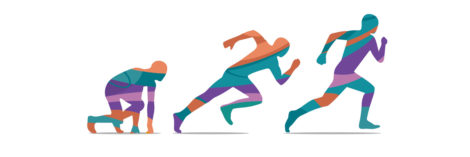Qualitative research in B2B is particularly complicated to organize, mainly because of the recruitment of respondents. This article explains what options you have to compensate respondents for their time.
Contact us for your B2B market research
Summary
- The challenge of B2B qualitative research
- Screener for the recruitment of B2B respondents
- Compensation: Essential but not essential
- The most common compensations for B2B qualitative research
Market research in B2B: a real challenge
Conducting market research in B2B is methodologically more complex than in B2C. This is due to two factors:
- it is complicated to recruit B2B respondents for qualitative surveys
- for surveys, there are no large-scale B2B panels
For these reasons, B2B market research is generally more protracted, more complex, and therefore more expensive to conduct. In addition to the budget, there is also the issue of compensation for respondents to B2B qualitative research.
Below, you will find a table detailing the equivalent in Euros of the compensation we granted in the B2B market research we conducted last year. The payments are given as an indication and can vary greatly depending on the function of the respondent.
| Sector | Compensation for a 20-minute telephone survey | Compensation for a 60 min qualitative interview |
| healthcare (pharma, medicine) | from 100€ for general practitioners and specialists | >200€ |
| IT | 50€ | 80-100€ |
| construction | 50€ | 80-100€ |
| food | 0-50€ | >50€ |
| education | 0-20€ | 50€-80€ |
| public administration | 10-20€ | 50€ |
It is common for customers to impose rules for selecting respondents, which further complicates the task. Recruiting can also be made much more complicated by screening rules set by the customer. An example is given below.
Sample screener for recruiting respondents to a B2B qualitative research project
Here is an example of the recruitment criteria imposed in a project on neobank:
- Companies that are customers of a neobank
- Less than 250 employees
- Respondent is an executive or CFO of a reasonably large company
- x% of participants will have XYZ Bank as their traditional primary bank
Access our panel of B2B respondents
Compensation: important but not essential
Compensating a respondent for a B2B interview is a common practice. However, it is not essential. We often have customers, prospects, and contacts in our network who are happy to share their experiences with us without asking for compensation. This situation is rare. It is more common to propose a “little something” to your respondent.
Individual interviews in B2B vs. Focus Groups in B2B: same compensation?
Our customers often ask the differences between focus groups in B2B and individual interviews in B2B. Nevertheless, it is still relevant to use focus groups in specific contexts in B2B. In this article, we have explained all the methodological differences that make us prefer the interview approach in B2B.
When it comes to verifying a value proposition with professionals from different sectors, it can be helpful to gather them around the same table. The time saved is essential, and so are the insights. However, the focus group approach requires a more significant time investment, 2 to 3 hours excluding travel time. In this case, we recommend you seduce your respondents by inviting them around a good table and offering them 100€ compensation for their time.
Be sure to inform the restaurant owner in advance to set aside time for discussion between courses. Clearly announce the rules of the game to your guests beforehand. Avoid alcoholic beverages, which will not improve the quality of the discussions.
The most common compensations for qualitative interviews in B2B
Let’s face it; it’s widespread to be offered money to participate in a qualitative B2B interview. Some companies have even made a specialty of recruiting professionals for market research. The “money” argument is the first one they put forward. The screenshot below is a typical email you might receive if selected.
Cash compensation has become a key driver of market research in some industries. For example, in the medical sector, research is so numerous that doctors and specialists supplement their income by answering telephone surveys. It is not uncommon to be paid 100€ for 15 minutes of their time.
Fortunately, there are still alternatives. They are beneficial for start-ups with a tight budget that still need to conduct market research. In the case of research on an innovative product or service, you can, for example, offer free access to the service or a free product.
Think about gift vouchers, which can be purchased in groups from the Service Provider and give you a discount. The same principle can be applied if you negotiate a gift in kind from a supplier. We have always had a lot of positive feedback when we offer a meal for 2 people in a quality restaurant. The restaurant owner will undoubtedly be interested in selling several vouchers and will give you an attractive discount.
Posted in Marketing.


